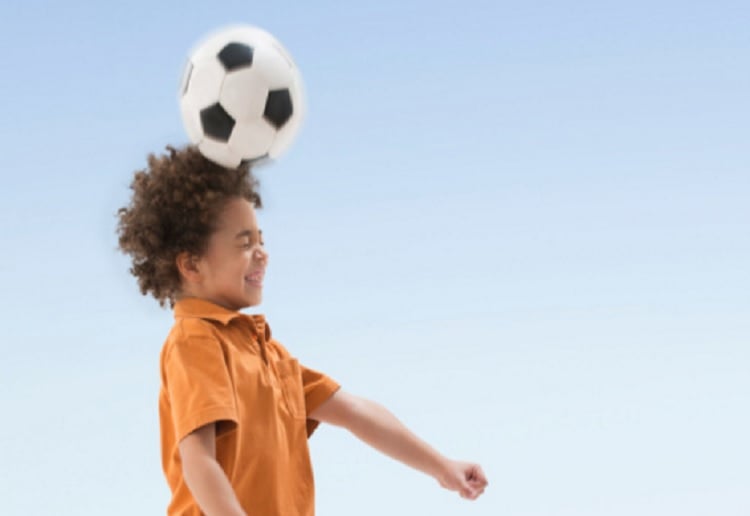Experts are concerned about young children suffering repetitive blows to the head during sports games.
British scientists investigated the autopsies on six retired professional footballers with dementia and found they had a form of the disease associated with blows to the head, perhaps from “headers”.
They had evidence of chronic traumatic encephalopathy (CTE), a progressive degenerative disease usually associated with boxing.
The research follows a study at the University of Stirling, published last year, which found ‘significant’ changes in the brain’s short-term memory function from routine heading practice, reports Daily Mail.
Researchers asked 19 footballers to head a ball 20 times as if they were heading from a powerful corner kick.
They were tested before and afterwards, and scientists found their memory test performance was reduced by between 41 and 67 per cent — although it reverted to normal within 24 hours.
Concerns about repeated heading are not new. When former England striker Jeff Astle died in 2002 aged 59, having suffered from dementia, a coroner found the condition was caused by repeatedly heading footballs.
Re-examination of his brain tissue in 2014 revealed that he had CTE.
‘A header is like a punch to the head,’ says Dr Tom Crisp, a consultant in sport and exercise medicine at the London Independent Hospital.
This month, U.S. researchers found that players who headed the ball a lot were three times more likely to suffer concussion symptoms — which include headache, nausea and confusion — than those who didn’t.
If the player has a second head knock while concussed, it can cause more serious damage, according to Dr Nicholas Davies, a consultant neurologist at the Queen Elizabeth Hospital and Spire Parkway Hospital in Birmingham.
‘If there is mild concussion, a player might not realise it. If they then suffer another blow in quick succession, it could lead to brain injury,’ he says.
More insidious is the potential for repeated headers to cause long-term sub-concussive damage — injury to the brain without any obvious symptoms, suggests Dr Michael Grey, a neuroscientist from the University of Birmingham.
Heading the ball over a period of years could damage the white matter (nerve fibres that connect various brain regions), leading to loss of functions such as reasoning, he suggests.
The major concern with children is that their brains are still developing.
So, too, are their neck muscles, which means they have less strength to take the force of the ball’s impact.
Two years ago, the United States Soccer Federation banned children aged ten and under from heading footballs, following a lawsuit.
While more research is needed, children should avoid practising headers many times a day, says John Hardy, a professor of neuroscience at University College London.
Tony Kochhar, professor of sports science at the University of Greenwich, suggests that ‘at the very least, children playing school football should wear headguards or be prevented from doing more than five headers a match’.
Neither of my boys play Soccer, so I am not certain what the Australian guidelines are when it comes to “headers” in under age matches?
From what I have read on a couple of local clubs websites their rules have no stipulation on it at all. I also asked a few soccer mums and they have said while it’s not something they practice at training, headbutting the ball is totally fine during a game.
We would love to hear what your club recommends.
Share your comments below.




















-

-
-
mom94125 said
- 01 Nov 2017
-

-
-
mom81879 said
- 18 Apr 2017
-

-
-
Stef said
- 23 Feb 2017
-

-
-
mom93821 said
- 16 Feb 2017
-

-
-
Ellen said
- 16 Feb 2017

-

-
-
june11 said
- 15 Feb 2017
-

-
-
mom112217 said
- 15 Feb 2017
-

-
-
BellaB said
- 15 Feb 2017
-

-
-
mom57619 said
- 15 Feb 2017
Post a comment1:54 pm
7:35 am
10:18 pm
6:02 am
3:59 am
8:07 pm
4:48 pm
4:12 pm
1:58 pm
To post a review/comment please join us or login so we can allocate your points.